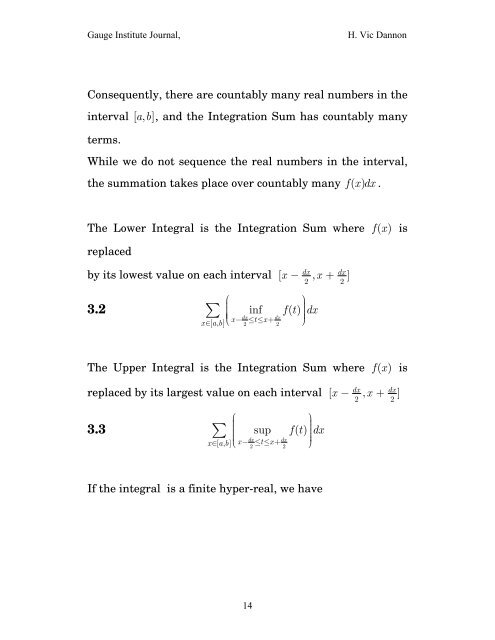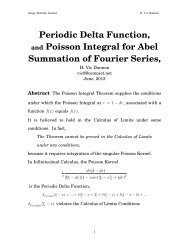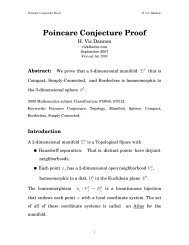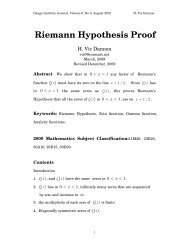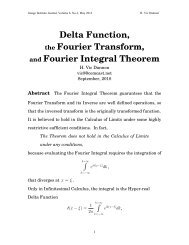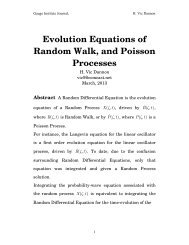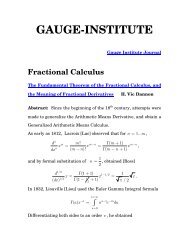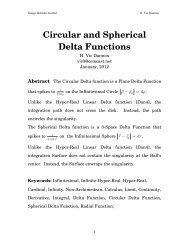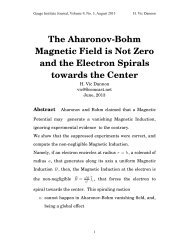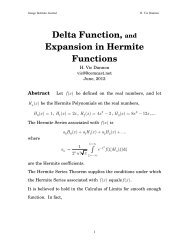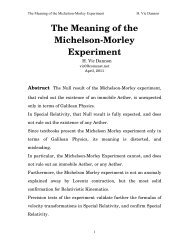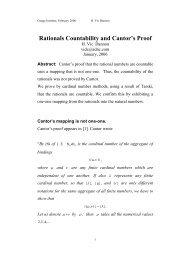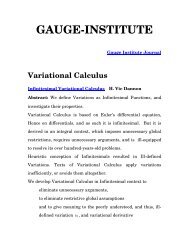Infinitesimal Calculus of Random Walk and Poisson Processes
Infinitesimal Calculus of Random Walk and Poisson Processes
Infinitesimal Calculus of Random Walk and Poisson Processes
Create successful ePaper yourself
Turn your PDF publications into a flip-book with our unique Google optimized e-Paper software.
Gauge Institute Journal,<br />
H. Vic Dannon<br />
Consequently, there are countably many real numbers in the<br />
interval<br />
[,] ab<br />
, <strong>and</strong> the Integration Sum has countably many<br />
terms.<br />
While we do not sequence the real numbers in the interval,<br />
the summation takes place over countably many f ( xdx. )<br />
The Lower Integral is the Integration Sum where f ( x ) is<br />
replaced<br />
by its lowest value on each interval<br />
3.2<br />
∑<br />
x∈[ a, b]<br />
⎛<br />
⎜⎝<br />
dx dx<br />
2 2<br />
[ x − , x + ]<br />
⎞<br />
inf f ( t)<br />
dx<br />
⎠⎟<br />
x− ≤t≤ x+<br />
dx dx<br />
2 2<br />
The Upper Integral is the Integration Sum where f ( x ) is<br />
replaced by its largest value on each interval<br />
3.3<br />
∑<br />
x∈[ a, b]<br />
⎛<br />
⎜⎝<br />
⎞ sup f ( t)<br />
dx<br />
⎠⎟<br />
dx dx<br />
2 2<br />
x− ≤t≤ x+<br />
[ x − , x + ]<br />
dx dx<br />
2 2<br />
If the integral is a finite hyper-real, we have<br />
14


